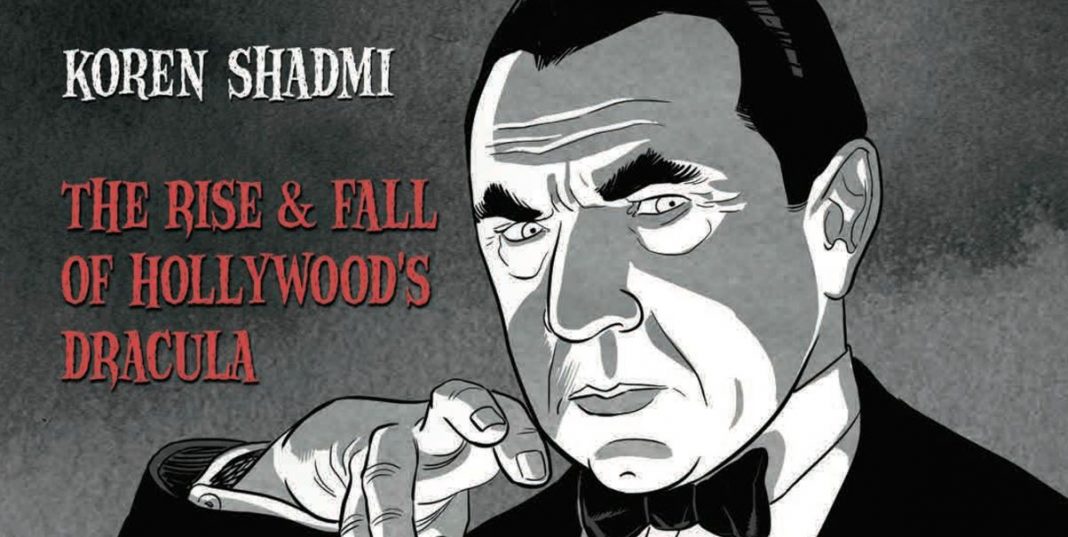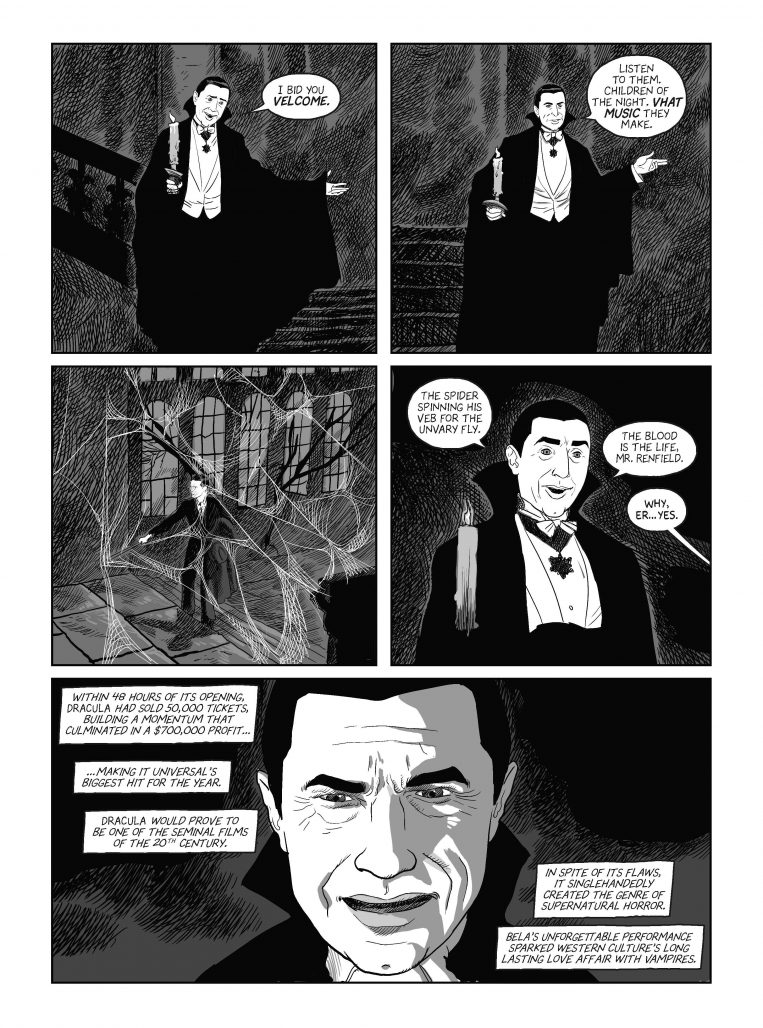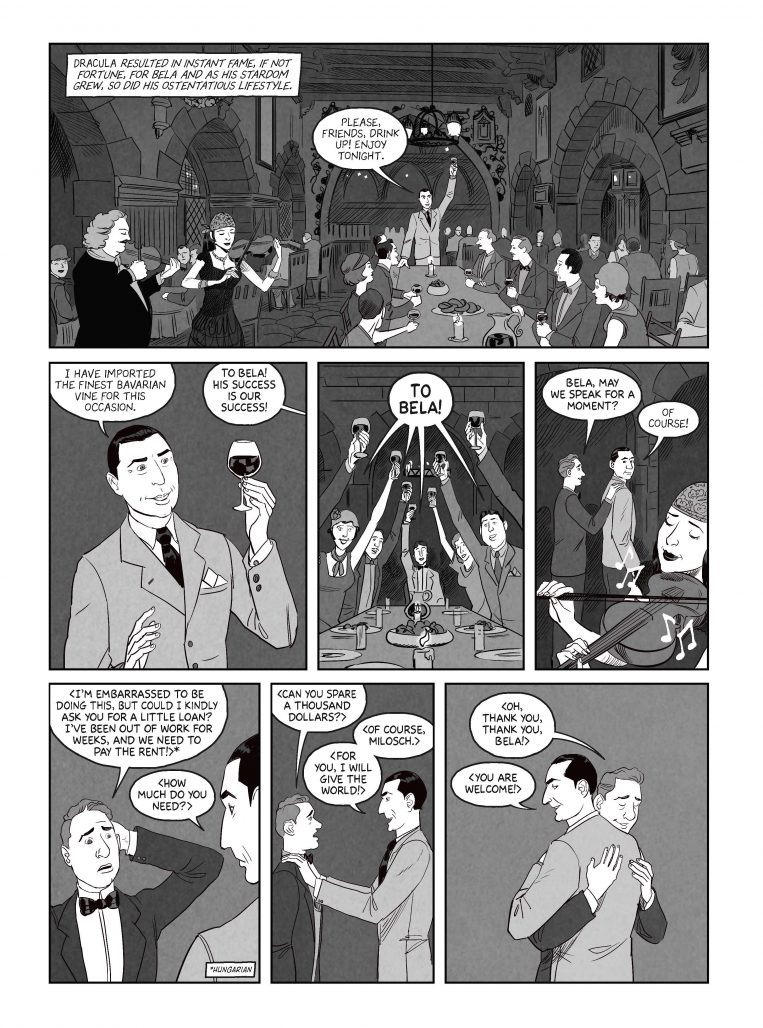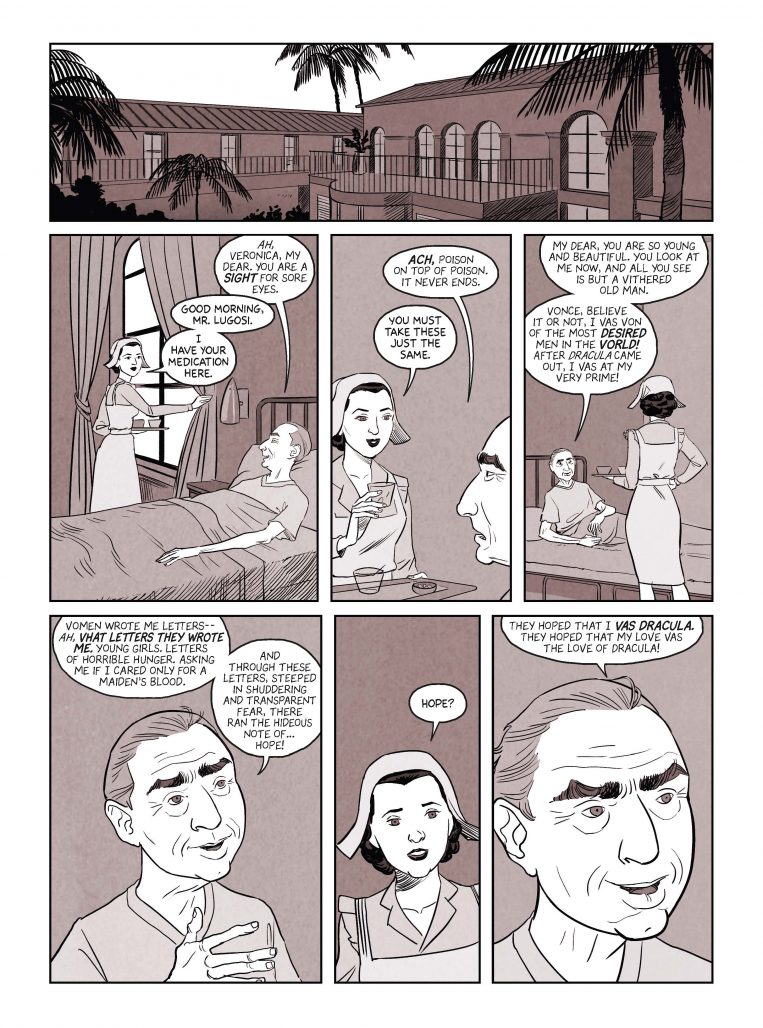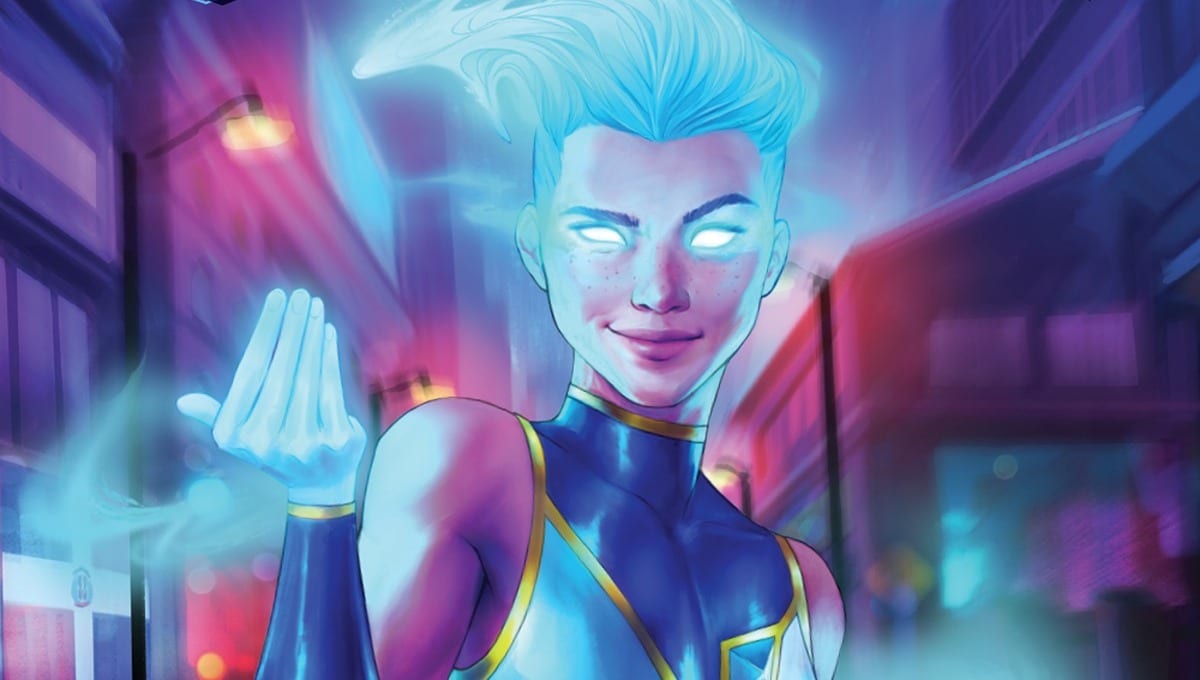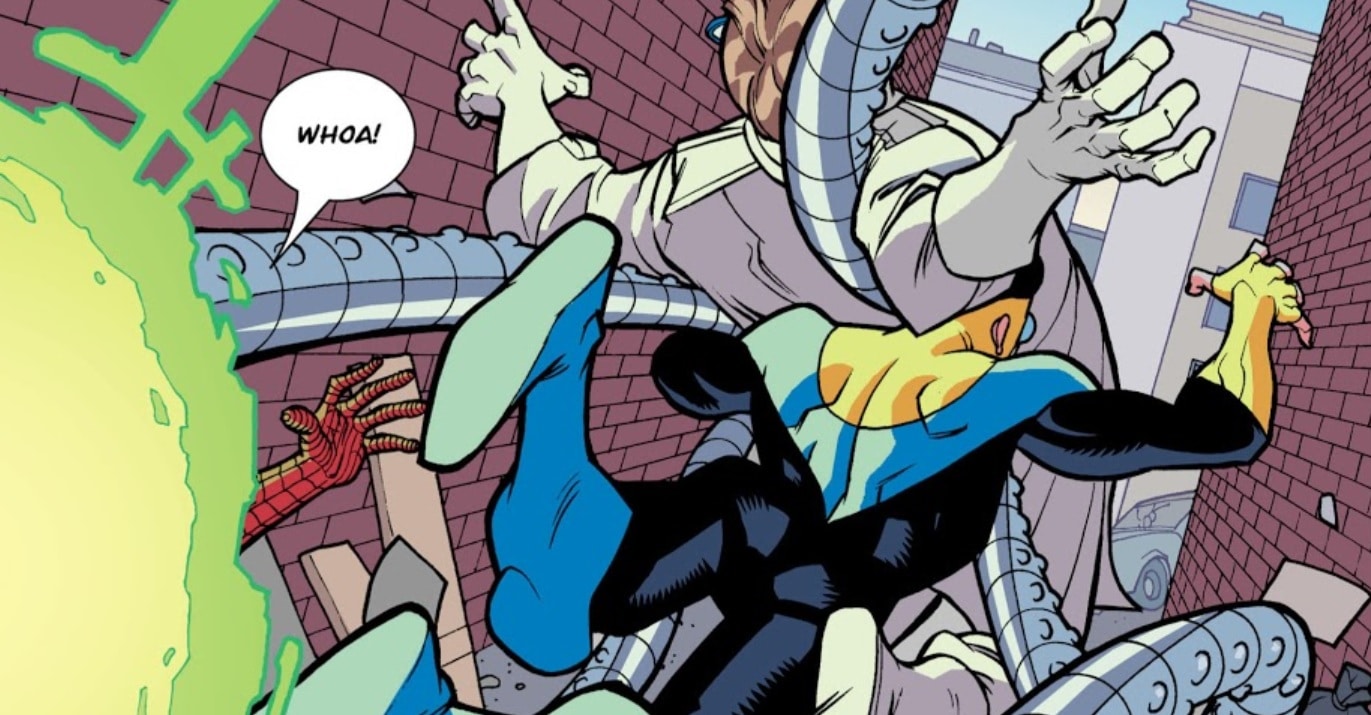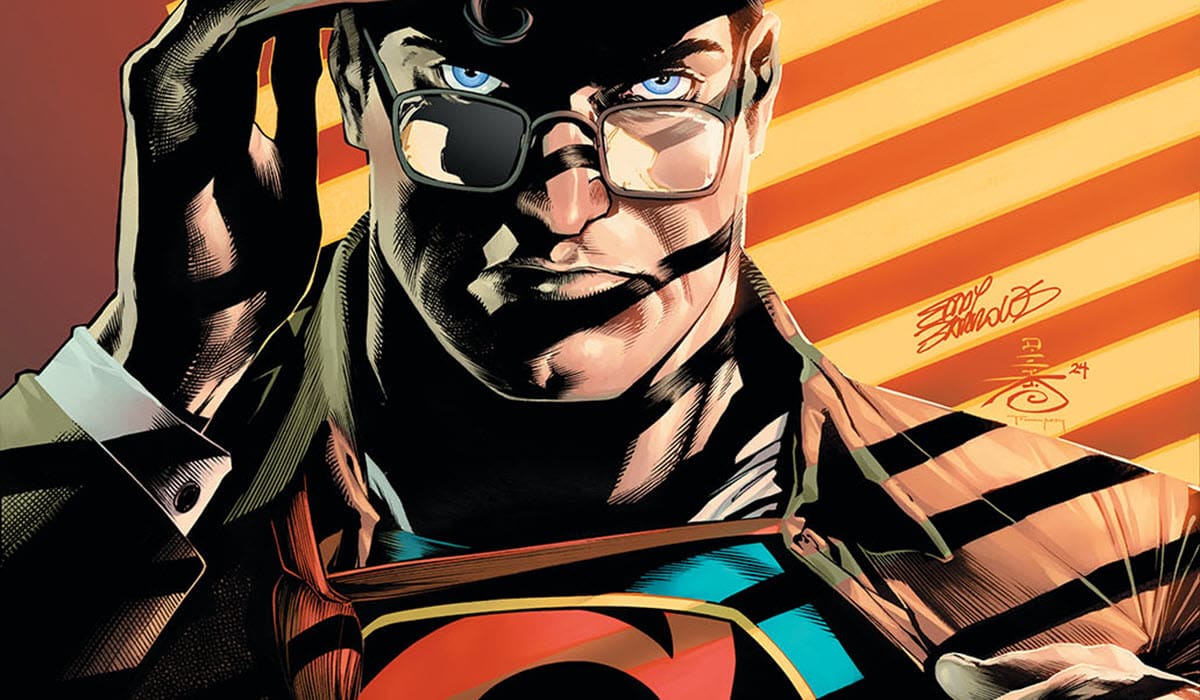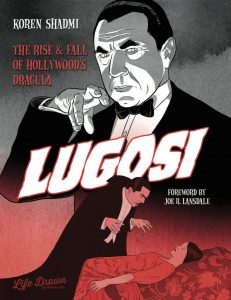
Bela Lugosi is synonymous with Dracula. He’s synonymous with the character, the myth, and the movie. It’s often a condition associated with becoming iconic, or being an icon. In Lugosi’s case, though, the actor’s embodiment of the gothic creature is so absolute that one could make the metaphorical case that it is Dracula who is portraying Lugosi.
In any case, what’s certain is that one cannot exist without the other after the Universal horror classic Dracula (1931) released on theaters. It’s a uniquely strange phenomenon that graphic novel creator Koren Shadmi captures in exquisite detail in his new book Lugosi: The Rise and Fall of Hollywood’s Dracula.
Published by Humanoids’ Life Drawn imprint, Shadmi’s Lugosi is a biography of one of Hollywood’s most titanic yet tragic figures in the industry’s history. It follows Lugosi’s career on the stage, his involvement in a failed Hungarian communist revolution that took place in 1919, his rise to international recognition thanks to the movie Dracula, and how addiction and loneliness eventually led to his ruin.
The book is phenomenally researched and structured. It embraces Lugosi’s theatrical persona and leans on it to present his story as a kind of long duration stage play. This is played up even further once the story reaches the release of Dracula in 1931, which impresses upon Lugosi this newfound ability to stay in the role of the vampire perpetually, to varying degrees of intensity.
Much like Shadmi’s previous biography, The Twilight Man: Rod Serling and the Birth of Television (also released by Humanoids), Lugosi is a comprehensive look at a larger-than-life public figure and the times he lived in, which both helped shape the man and then destroy him.
The Beat corresponded with Shadmi on his new book, the theatricality of Lugosi’s Dracula inside and outside the movie, and his favorite Lugosi movie. It follows below.
Ricardo Serrano: Bela Lugosi isn’t the first public figure you’ve researched. You have a book on The Twilight Zone‘s Rod Serling called The Twilight Man that also touches upon the birth of television. Lugosi and Serling are two very distinct personalities and it’s evident you treat them as such as each book definitely carries its own identity. What drew you to the story of Bela Lugosi after working on Serling’s?
Koren Shadmi: Lugosi was on my shortlist of possible book subjects for a while, I think around 5-6 years ago I was on a trip upstate with my wife and we were listening to a history podcast, there were two episodes about Lugosi, I think she fell asleep—but I was totally fascinated by his rollercoaster of a life. He can easily compete with Count Dracula himself for a dramatic life story. I tried to bring forth his unique personality; he was a very romantic person, very emotional but also had many demons he was grappling with. If Rod Serling felt alienated from the world by his war experiences, Lugosi was alienated from the fact that he was a Hungarian immigrant with a heavy accent. They were very different people but there’s a lot of similarities, both of them were embraced by Hollywood and then eventually rejected.
Serrano: There’s a very theatrical quality to Lugosi’s presence throughout the book, especially after he plays Dracula on screen and how it influences how he presents himself everywhere. Was this intentional or was it just how his personality really was?
Shadmi: It was intentional; he came from a background in theater, and I didn’t have enough room to show it as much in the book, but he kept returning throughout his career to the stage. There’s actually a scene where Tod Browning tells Lugosi to tone down his over-the-top physical gestures that he was so used to from the theater. It’s a different language than film. The theatrical mannerisms were also apparent in Lugosi’s personal life, it’s almost as if he wanted his biography to read like a stage play.
Serrano: The amount of research that goes into a book such as this has to be massive, not just in terms of the figure’s personal story but also on the times he lived in. How did you settle on the material that would eventually end up in the book and was there anything that didn’t make the cut that you wish had made it?
Shadmi: Most of what you do when writing a non-fiction biography for comics, I find, is cut out information and edit down the life story. With Lugosi, as was the case with Serling, a lot of stuff had to be edited down otherwise I would have had a 500-page graphic novel, and I just can’t have that. I picked the stuff that seemed the most crucial to me, and the most indicative of his character. I think more than anything I wanted the reader to feel connected to Lugosi—even though he was kind of terrible sometimes, he was human, and hopefully you can see the reasons for his flaws and eventual downfall.
Serrano: For a long time, Tim Burton’s Ed Wood (1994) was one of the few options available to curious audiences looking to learn more about Lugosi in an accessible way. Did the movie influence or help you in a considerable way and do you think it did Lugosi’s story justice?
Shadmi: I deliberately did not watch Ed Wood until I was done writing! I had watched it as a teenager and absolutely loved it, but when I was writing the book I had mostly forgotten the plot of the movie. I did a lot of independent research. Luckily when I watched it I saw that there were only one or two scenes that were parallel from the Ed Wood/Lugosi period. There’s a lot of things the movie left out and changed too. For instance, they wrote out his wife completely out of the picture. I understand it’s done for drama, but in my script I tried to stay more true to his life story. I hope readers can now get the full scope of Lugosi’s incredible life through my book, and not just his sad final days. Also, what happened to Tim Burton, he really lost his mojo, hasn’t he?
Serrano: I think Burton started relying too much on CGI for his own good. You know, a series of bad movies could make force him down the same road that Lugosi landed on as his career plummeted (although I don’t think it will end as tragically as it did for Lugosi). What’s true of both of them is that there are some undeniable classics in their filmographies. With that in mind, what’s your favorite Bela Lugosi movie?
Shadmi: My favorite Lugosi flick is The Black Cat (1934). It’s the ultimate Lugosi/Boris Karloff showdown. It’s very beautiful visually with these amazing art deco sets and outfits. Lugosi definitely wins this one, he gives his usual over the top performance compared to Karloff. Highly recommended.
Koren Shadmi’s Lugosi: The Rise and Fall of Hollywood’s Dracula will be released on September 28, 2021.


